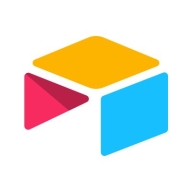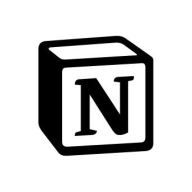

Airtable and Notion are both prominent productivity tools within the digital workspace. While Airtable is preferred for its collaborative capabilities, Notion stands out for its creative flexibility.
Features: Airtable is notable for its robust automation features, extensive database functionalities, and wide-ranging integrations. It is ideal for tasks that require detailed data management and seamless collaboration. Notion offers versatility in note-taking, supports unlimited hierarchies, and enables users to customize and create interconnected documents, making it suitable for a variety of applications from project management to personal journaling.
Room for Improvement: Airtable could enhance its user interface further to make it even more intuitive and accessible to non-technical users. Additional customization features would also be beneficial for tailoring the product to specific workflows. Integration with more tools could increase its utility. Notion might improve by enhancing its offline capabilities to ensure seamless access regardless of connectivity. More advanced database functionalities could strengthen its data management offerings. Adding in-depth analytics features could make it more competitive for business use cases.
Ease of Deployment and Customer Service: Airtable has a straightforward deployment model with comprehensive guides and multiple support channels. It caters well to professional environments with technical datasets. Notion features an easy setup with useful templates for quick adoption and emphasizes community-driven support in addition to its help center, making it smooth for teams and individual users prioritizing simplicity.
Pricing and ROI: Airtable offers tiered pricing based on database size and features, which could result in a higher ROI for businesses that require extensive data management and collaboration. Notion's pricing model is more accessible with significant value in its free tier, supporting small teams and individuals pursuing varied tasks with flexible features. Notion's approach suits users seeking cost-effective solutions, while Airtable's structured plans benefit organizations focused on workflow-centric applications.


Airtable was founded on the belief that software shouldn't dictate how you work – you should dictate how it works. Our mission is to democratize software creation by enabling anyone to build the software tools that meet their needs. Creators and creatives around the world use Airtable to do everything from cattle tracking to filmmaking, and they have great things to say.
Our team brings experience from building and scaling products touching millions of people at Google, Facebook, Salesforce, Microsoft, Dropbox and other leading technology companies. We take pride in our product, and strive hard to provide the best possible experience for you, even if it requires creating new technologies and design paradigms along the way.
Airtable is an independent, private company headquartered in San Francisco. The company has raised over $63 million in funding from notable investors including: CRV, Caffeinated Capital, Freestyle Capital, Data Collective, Founder Collective, CrunchFund, and Box Group.
Notion is an all-in-one workspace that enables teams to collaborate, organize, and manage their work effectively. Its primary use case is to streamline project management, knowledge sharing, and task tracking. With its versatile functionality, Notion allows users to create and customize databases, wikis, and documents, making it a powerful tool for organizing information.
The most valuable functionality of Notion lies in its flexibility and ease of use. Users can create and link various types of content, such as text, images, files, and even embed external resources. This enables teams to centralize their work and collaborate seamlessly, eliminating the need for multiple tools. Notion's drag-and-drop interface and intuitive editing features make it accessible to users of all technical backgrounds.
Notion helps organizations by fostering transparency, improving productivity, and enhancing knowledge management. By providing a centralized platform for collaboration, teams can easily access and contribute to shared projects, reducing communication gaps and ensuring everyone is on the same page.We monitor all Project Management Software reviews to prevent fraudulent reviews and keep review quality high. We do not post reviews by company employees or direct competitors. We validate each review for authenticity via cross-reference with LinkedIn, and personal follow-up with the reviewer when necessary.